Your cart is currently empty.

IVAN BERKO FOR CORRIDOR | IVAN BERKO FOR CORRIDOR | IVAN BERKO FOR CORRIDOR | IVAN BERKO FOR CORRIDOR | IVAN BERKO FOR CORRIDOR

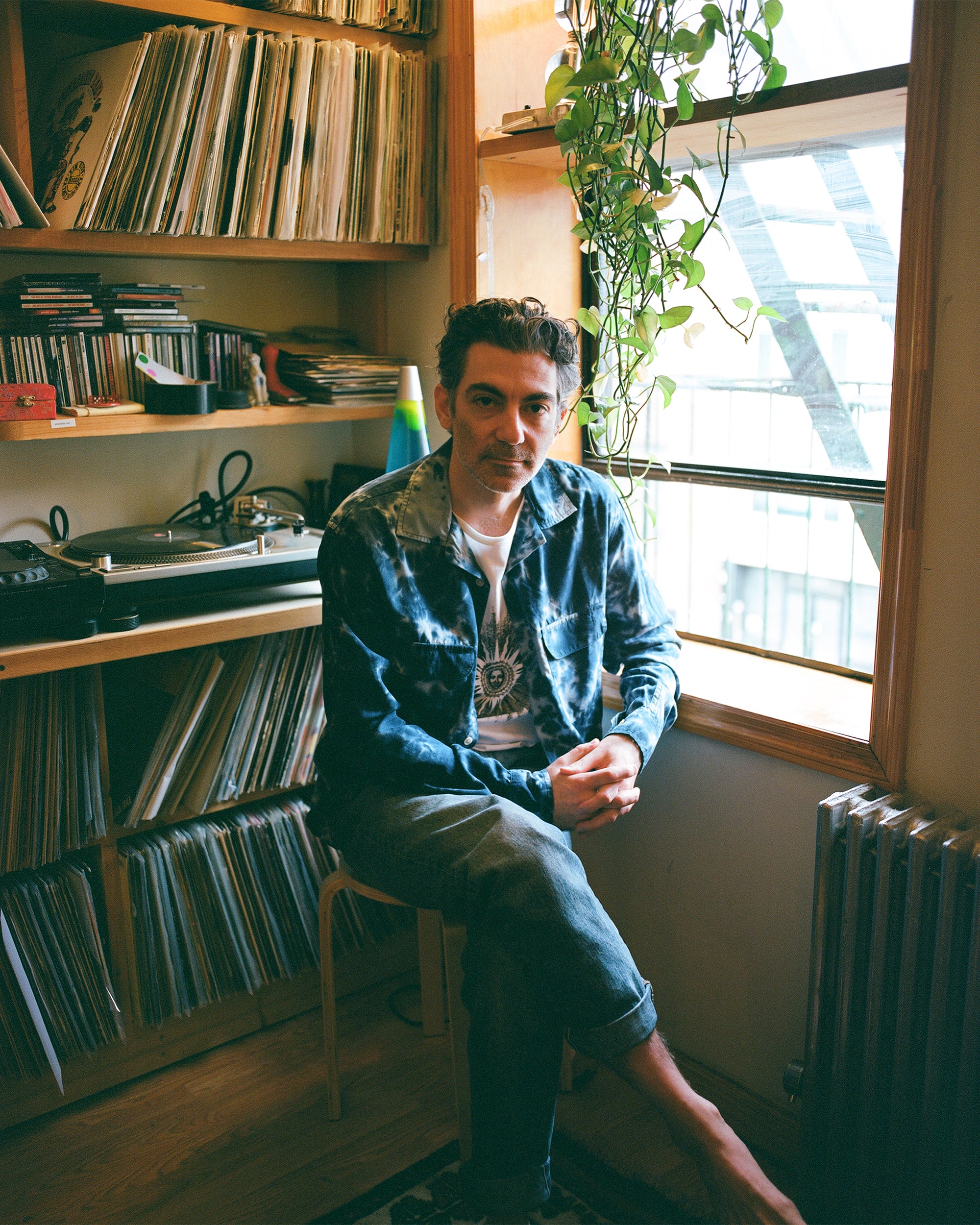
INTERVIEW WITH IVAN BERKO
JANUARY 2023
CM: Conor McKeon
IB: Ivan Berko
CM: Hey Ivan, thanks for taking the time. Can you tell us a little about your relationship to music growing up, and how it informed what you’re doing today?
IB: Well my family is from New York. I'm from Queens originally. We moved to New Jersey when I was a kid, but we were coming back into the city quite often on weekends. A lot of my first musical memories are from driving the car around the city and seeing New York in the 80s. Hearing classic rock and oldies on the radio paired with the sights and sounds of New York. I remember hearing ‘Light My Fire’ by The Doors in the Bronx driving and seeing cars on fire, which for a six year old is pretty startling.
When I was an early teenager I would go into the city to buy CDs and records, and started going to underground punk shows, which opened up a whole world of music that you didn't hear on the radio or on TV. From there I started playing and touring with various bands and outfits, and then around 18 I started dabbling with production. And eventually that led to slowly amassing my personal studio. It’s grown into a semi-professional work environment for other people, not just myself.

CM: Seems like you often have multiple projects going on at once, and I’m wondering if you ever struggle with burnout?
IB: Well I still have a quote-unquote day job, so it’s not something I rely on to pay the bills. So DJing and producing is a time to share music, this joyous thing that helps me escape from stress and find comfort.
CM: That’s lovely. Do you draw inspiration with your productions from the stuff you're playing at clubs? Or do you have to separate the two in order to fully realize the artist’s vision?
IB: It all kind of whirlpools together. Digging for records definitely inspires new music, and that all synthesizes. Maybe I really like the drums of these 90s records, but then I really like these new synthesizers on top of it. I don't like getting too pastiche or too niche, it's fun to dissect the production values of old records and try to replicate that. Ultimately that just leads to pushing to a new sound. We have so many amazing new toys and tools now, and that's what I'm really excited about, being able to mix analog and digital together.
That's kind of my philosophy of life, to design your life in a way that every aspect of it feeds each other in some way. Working at a bar I get to play music for people and interact with people and have conversations about music and that leads to ideas or finding other kinds of records and that inspires new productions


"DJING AND PRODUCING IS A TIME TO SHARE MUSIC, THIS JOYOUS THING THAT HELPS ME ESCAPE FROM STRESS AND FIND COMFORT."
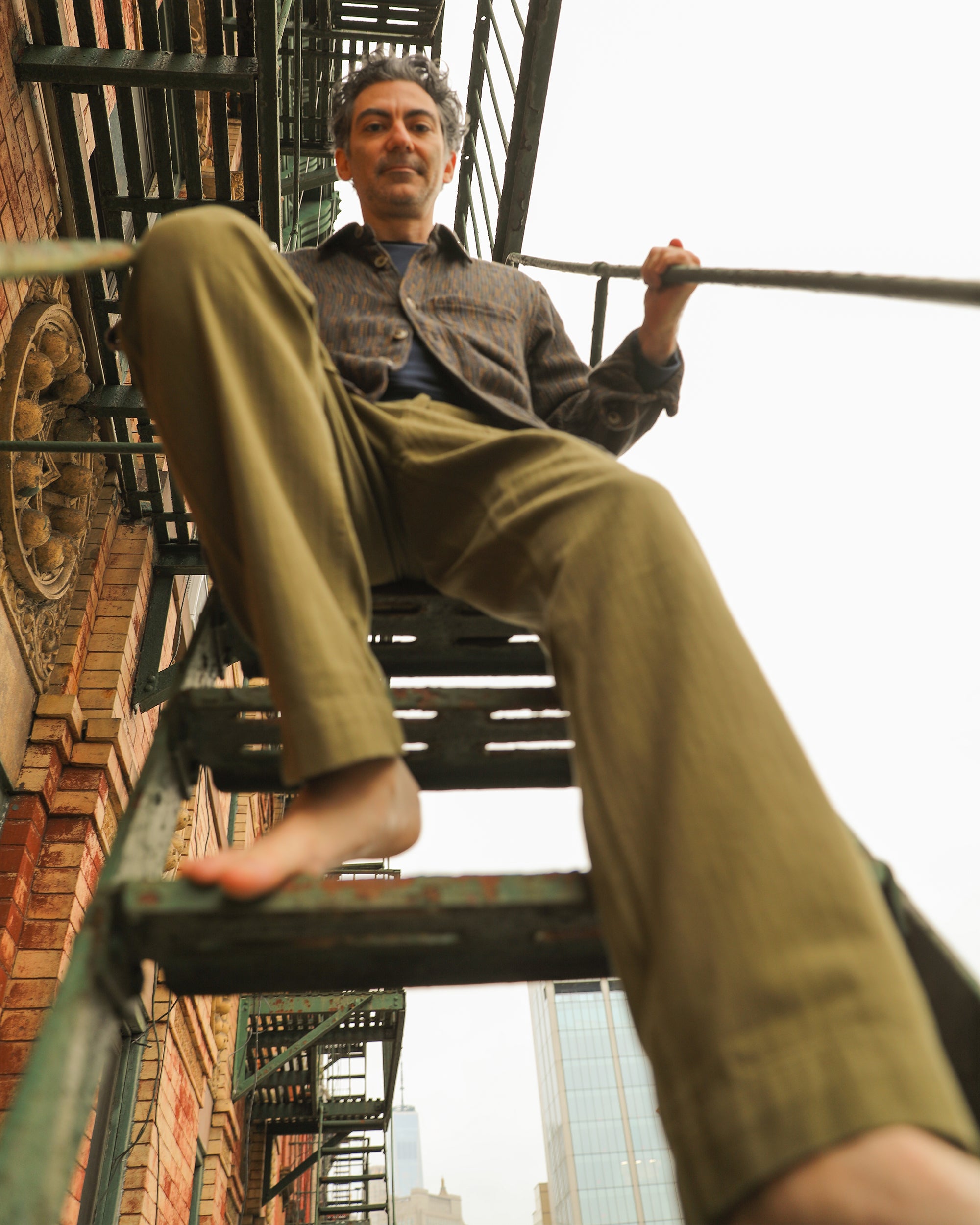

CM: I’d imagine that carries over when dealing with each individual artist?
IB: Yeah, ultimately it's about creating a space that allows creativity to happen fluidly. I'm working with one person now, and they don't have as much experience in a studio, so it's about creating a positive environment that pulls creative communication between us and out of them and allows it to happen naturally.
CM: How do you know when a song is finished? Or do you ever?
B: Oh God, I don't know. I'm still figuring that out. I think when the person who wants it asks for it. Due dates are important for me. I have a lot of friends that are painters and they say the same thing, that you could paint a painting for a hundred years, and I think a mix on a production can go that way as well. So it's good to have a due date and just be like, okay, that's done, and it's maybe not exactly the way I wanted it, but I've learned a lot and for the next thing I can work on those areas.
CM: I think that approach comes with age, too.

IB: Oh yeah. Like you really have to fail. If I could go back in time and talk to myself, 20 years ago, that’s what I would say, just to not worry about making a masterpiece immediately because you're not going to, you're never going to. You have to just complete things, so that the next thing you do is better than what you've done. You can't just keep sculpting.
CM: I understand you're starting a new label, can you tell me more about that?
IB: Yeah, it's with my friend Budino, who's an Italian DJ who lives in Berlin. We met in 2017-2018, and right away became really good friends. We share a love for similar types of music. And we decided to start releasing some stuff, the first should be out before March.
The way I'm approaching this is a lot more open to just getting things out. The first couple of releases will just be digital and on streaming, something I was probably really against 10 years ago because I really think physical media is important, just as something to exist in in the real world. But now I'm open to it. You can create media around digital music, and that’s interesting and engaging. I think it's on a similar note to what I was saying about finishing things. I think it's just doing it, and coming up with solutions to the problems along the way.
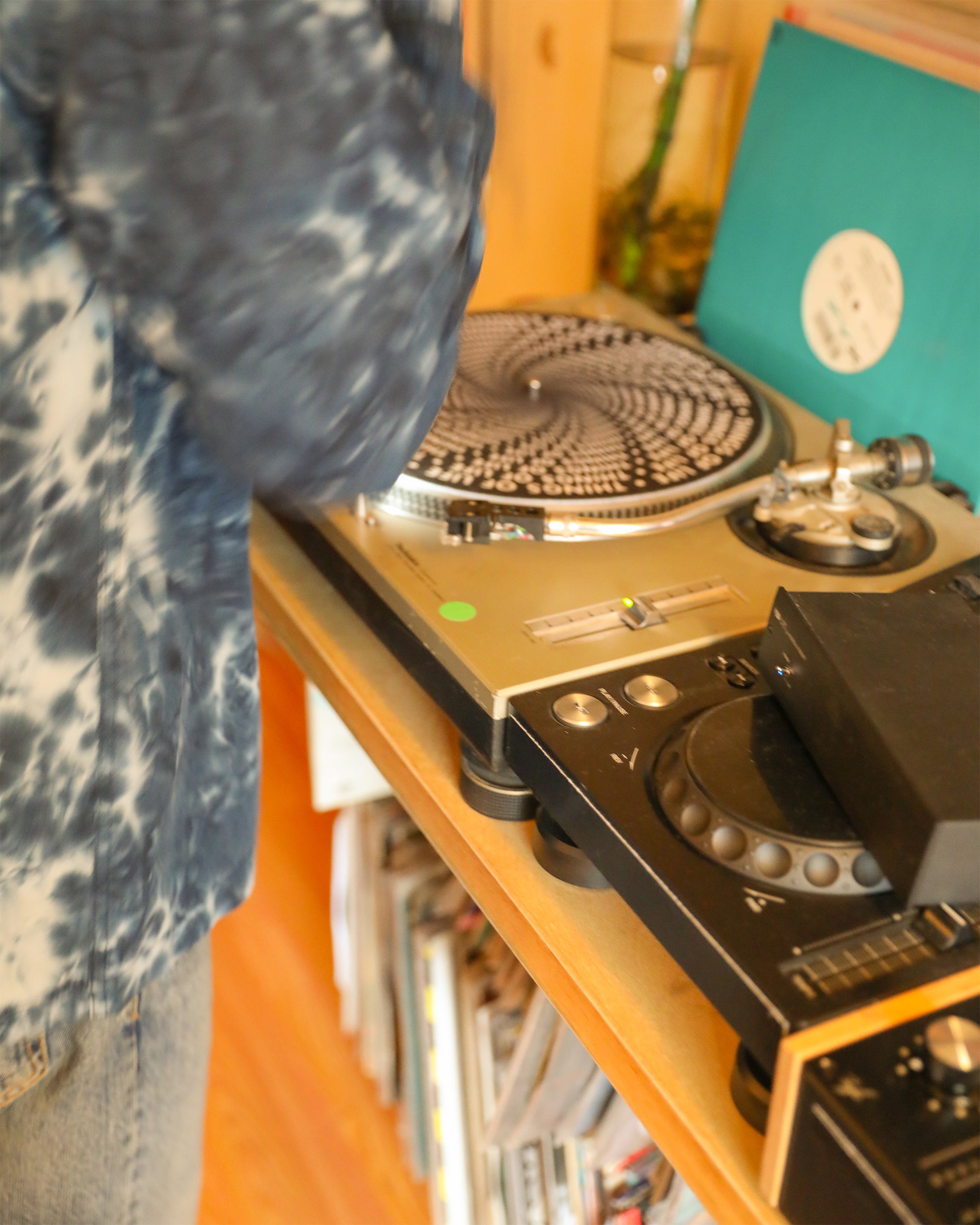

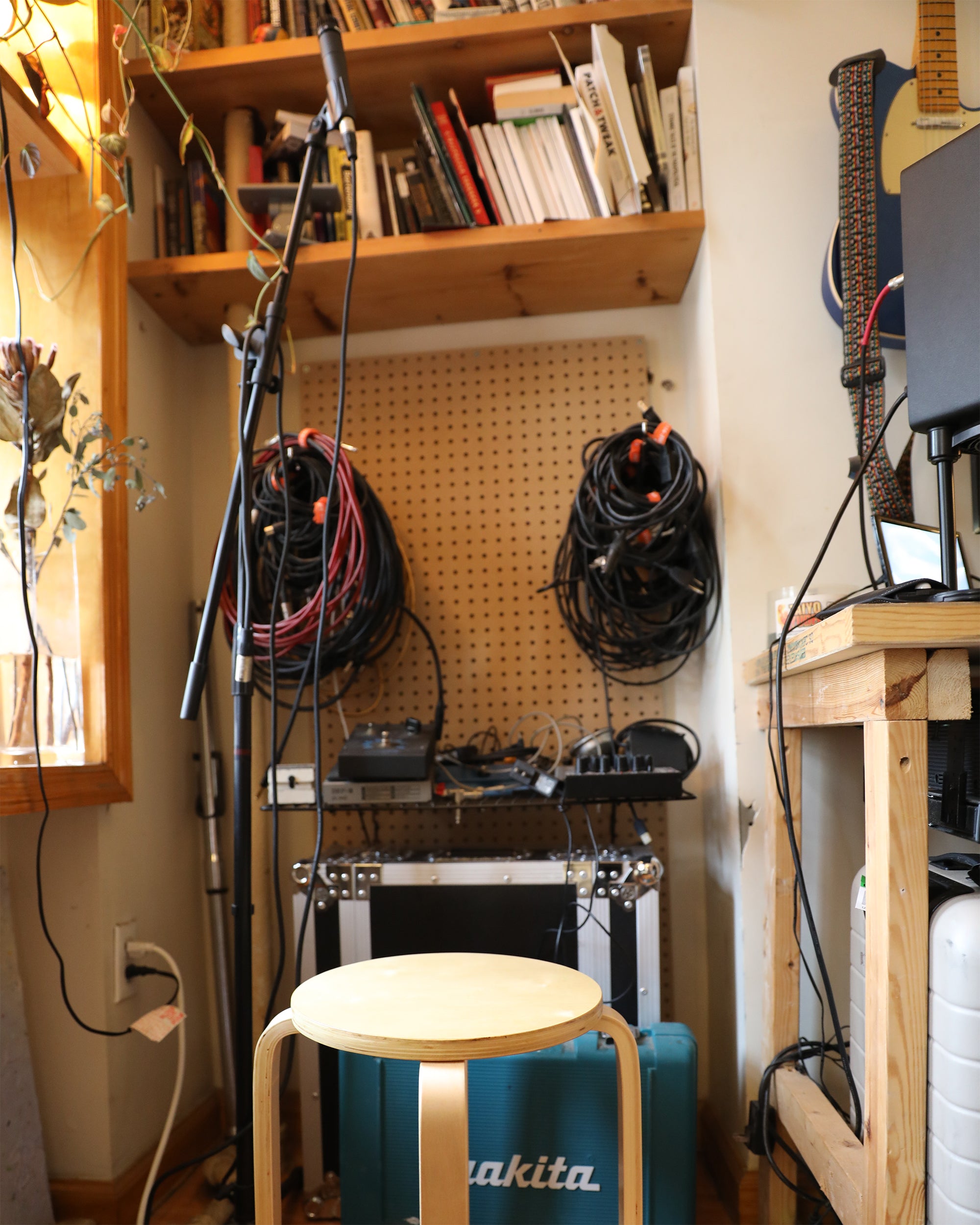

IB: So yeah, I'm excited to work on this and collaborate with lots of friends. My friends who do video and design work and all these different musicians from around the world that we're working with right now. It's exciting. I don't really like the idea of being a tourist, and music is a way to bring things to places and to communicate and share. Like let's go see that part of the world, here's something to bring.
CM: In that vein, I know that this past summer you played in the Balearic Islands. Can you tell us about that experience?
IB: The last couple of years I've been going to Ibiza. It's a really special place with a rich history for music, in particular hedonistic dance music. So it’s been a lot of fun to explore that place.
CM: When you have a gig outside the city, are you looking for songs that fit that specific place?
IB: Yeah, especially because dance music is so referential to a geographic place. House music comes from the warehouse in Chicago. Disco comes from discotheques in New York, techno comes from the future that people in Detroit envisioned. And balearic music comes from Ibiza, which is a kind of a feeling, like a mindset. When you're in this beachy sunset paradise, certain sounds work really well. So I definitely think about that when I go over there.

CM: I’ve always admired your ability to find and play songs no one’s ever heard. I'm wondering if you think that’s an innate gift or something that you've developed over time?
IB: I don't know if it's an ability, it's definitely a result of consuming music every day, and constantly searching and paying attention. It’s this rabbit hole you go down, where you like one thing and then you figure out they did this other thing, and they work with these people, who produce this other thing, and it’s all of these lateral movements.
CM: Do you think some of that desire to go down that rabbit hole started with traveling to New York as a kid and absorbing all those different sounds?
IB: Yeah, I think it was just like once I kind of saw that there was more out there than just major radio and MTV had to offer, that there was like this whole other world, this really deep and rich underground independent music scene in the 80s. Such a rich collection of labels and venues.
CM: I'd love to go into your process of creating a mix. Are you starting with a particular song or cluster of songs, or is it more like what you said earlier about the Balearic Islands, where it’s coming out of whatever headspace you’re in at the moment?


IB: It’s kind of different every time, but I think my favorite mixes are ones that are listening mixes, you know? They're not really club mixes, more a collection of sounds of songs that just flow together, and maybe they were never intended to be played that way, but they flow from one to another. And then considering musical aspects like keys and tempos, it can be really pretty groovy.
CM: Do you find similarities between the process of putting together a mix and putting together an outfit or a wardrobe?
IB: It's similar to music in a way. There's a feeling you get from an article of clothing. You kind of come up with an idea of a genre that fits a situation in my mind and I think clothing can be that. I have clothes that I wear for work and outside of work, for going out, and have these parameters and then you're like, I could wear that, it's kind of funny, or kind of comfortable.
When I travel I find clothes sometimes, and that's for me similar to the record thing. I found this designer in Berlin, and now whenever I go there I go see her and buy a jacket or a shirt. I just wear her clothes and Corridor at this point.

CM: Can you talk a little bit about your style evolution?
IB: I still dress similarly to even 10 years ago, but it's a little bit more grown up now, a little bit more funky. I think I could get into suits as I get a little bit older, something a little more formal. I saw this great picture of Leonard Cohen sitting in a kitchen, smoking a cigarette in this amazing pinstripe suit, and I was like maybe when I'm like 50, that's my look. It commands respect *laughs* And I enjoy a nice tracksuit, when I'm doing errands or running around. A nice Italian tracksuit.
CM: I take it musicians are a big source of style inspiration for you?
IB: Yeah, absolutely. I'm trying to find these sunglasses that John Lee Hooker had that are so amazing.The metal tips? Yeah, I found an ad of him wearing them for this LA sunglass company from the 80s, and I wrote them. I was like, “Where are they?” *laughs* No response. No response.
CM: Speaking of musicians and style influences, you were on the Jokermen podcast recently, and I was wondering if you had a favorite era of Bob Dylan music and style.
IB: I'll start musically. I got really into his Christian Records last year. Long Train, Shot of Love, and Saved. I don't know why I overlooked these records for so long but they are so incredible. Sonically, musically, the way it’s recorded. I'm not a Christian by any means but I can definitely appreciate the passion. He’s using that genre like a blanket.


"THAT'S KIND OF MY PHILOSOPHY OF LIFE, TO DESIGN YOUR LIFE IN A WAY THAT EVERY ASPECT OF IT FEEDS EACH OTHER IN SOME WAY."
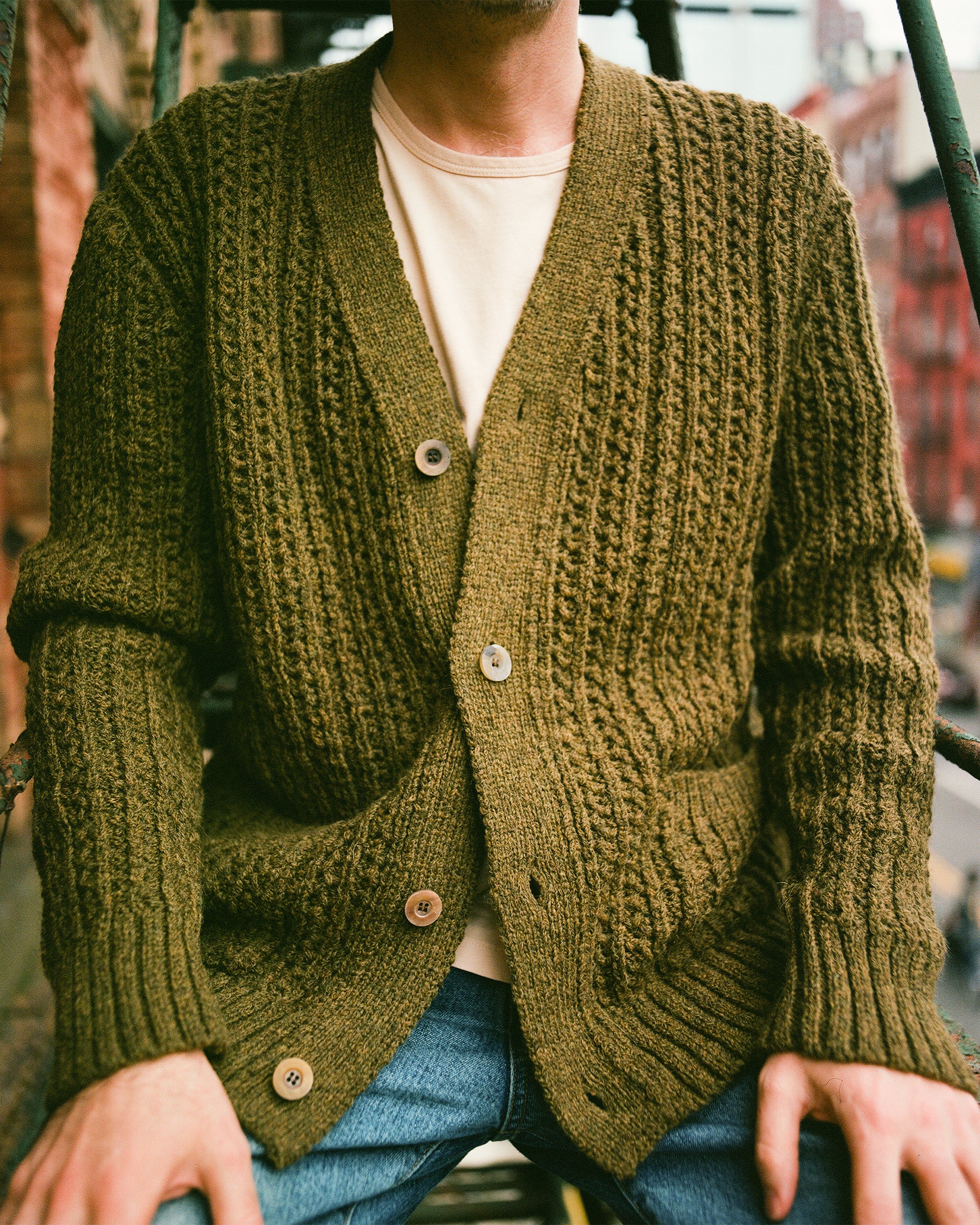



IB: Style-wise, he's looking pretty good lately! The last 15 years he’s been into those Nudie suits, and they’re amazing. His 80s looks are great too, the black eyeline era. He looks insane, it’s so good. He’s a real artist, and I think being an artist is about making choices. The more choices you realize you have, the more fun you can have in life. You can just cultivate all these different things to express.
CM: Well thanks so much for spending some time with us. Before we sign off, any upcoming gigs in the city you’d like to promote?
IB: My good friend Dirty Dave is coming in February, we're gonna DJ together at Milagrosa on the 23rd and Cafe Balearica on the 25th. He’s a crazy good digger, too, and we always have a lot of fun just playing each other new stuff.
___________________________
Ivan Berko is a NYC-based DJ and Producer, New York. Follow his Instagram for upcoming show here.




